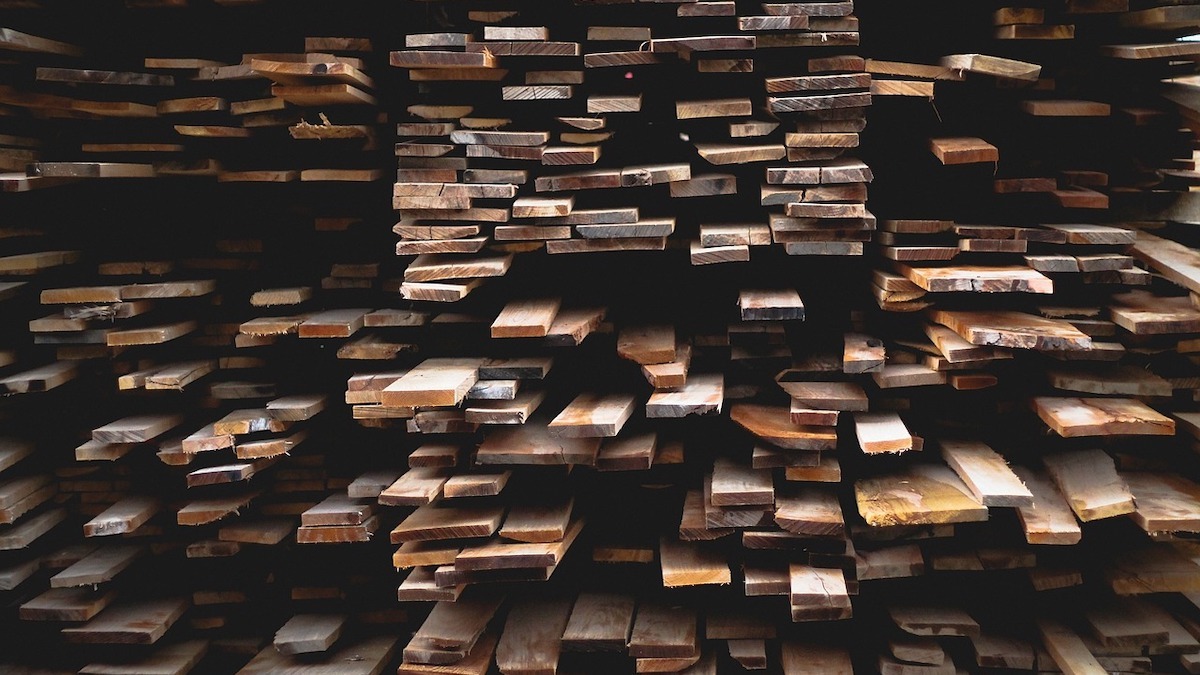PITTSBURGH – A building materials distributor is refuting the cross-claims of an Ohio lumber company, who blamed it for supplying allegedly defective lumber that led a Washington County man to sustain significant structural and mold damage to his property.
Nathaniel W. Cale of Chartiers Township first filed suit in the U.S. District Court for the Western District of Pennsylvania on Nov. 16 versus Keim Lumber Company, of Charm, Ohio.
“In or around February 2019, plaintiff and Keim Lumber entered into an oral contract with relation to the project, under which Keim Lumber agreed to furnish certain lumber materials for the construction and development of the residential dwelling on the property, including, but not limited to, boards, joists and trusses to be utilized to install the framing throughout the residential dwelling,” the suit said.
“Prior to entering into the oral contract, plaintiff provided Keim Lumber with a full and complete set of the construction drawings and architectural plans for the project, and said drawings and plans identified the specific lumber materials to be used in the construction of the residential dwelling.”
Cale said he spent $93,222.81 to purchase the lumber materials from the defendant.
Following the installation of shingles, doors and windows immediately thereafter, the plaintiff says the residential dwelling was completely “closed in” and waterproofed by May 8, 2019, such that the entire process from the initial construction and/or framing of the residential dwelling to being “under roof” took approximately 28 days to complete.
Though the materials were properly protected from the elements, the plaintiff said after he and his family moved into the home in February 2020, he discovered “certain unevenness, bowing, movement and dimensional instability in the flooring in the kitchen of the subject property” and “the interior and exterior doors of the subject property do not operate properly and are extremely difficult to open.”
The plaintiff added that the subject joists and lumber materials contained “improper moisture content” and that before the materials were properly dried, he encountered “the rapid development of mold growth upon certain joists that are easily observable, which also creates a potential safety hazard for plaintiff and his family.”
“By failing to properly deliver the joists and lumber materials in accordance with the contract drawings and specifications, as well as the applicable standards of the construction industry, Keim Lumber has materially breached its contractual and warranty obligations to plaintiff. As the direct and proximate result of Keim Lumber’s material breach of its contractual and warranty obligations, plaintiff has incurred, and will continue to incur, significant expenditures to remediate the construction defects,” per the suit.
Keim Lumber filed an answer to the complaint on Jan. 15, denying it was responsible for the deficient materials and asserting numerous affirmative defenses to the case.
Additionally, Keim Lumber claimed that the plaintiff has failed to mitigate his damages, that the plaintiff’s claims are barred or limited by any all applicable manufacturer’s warranties, by the gist of the action doctrine, by the economic loss doctrine and by terms and conditions of the parties’ written contract documents.
Keim Lumber concurrently filed a third-party complaint against Boise Cascade Building Materials Distribution, LLC of Boise, Idaho and Weyerhaeuser Company of Seattle, Wash., placing the blame for the allegedly sub-standard materials with those organizations.
UPDATE
Boise Cascade filed an answer to the complaint and cross-claims on Feb. 10, denying the material entirely and asserting its own cross-claims against its co-defendants.
“Without limiting the applicability of any of the provisions of the sales terms and conditions, Boise Cascade incorporates herein by reference as if more fully set forth at length, Paragraph 16 entitled ‘Buyer Indemnification’ which requires Keim Lumber Company to ‘indemnify and hold Boise Cascade harmless from all claims, judgments, liabilities, expenses, or costs arising from Buyer’s (Keim Lumber) breach of these terms and conditions of sale and/or acts of omissions,” the answer stated, in part.
“Based upon the language of Paragraph 16 of the ‘Buyer Indemnification’ provisions of the Sales Terms and Conditions, a request for indemnity and to be held harmless is asserted in favor of Boise Cascade as against the defendant and third-party plaintiff Keim with regard to the cause of action at issue.”
Additionally, Boise Cascade addressed Weyerhauser.
“Although liability has been and will continue to be denied to the plaintiff and all other parties concerning the lawsuit at issue, solely for the purposes of this cross-claim all contentions as set forth in the plaintiff’s complaint are incorporated herein by reference as if more fully set forth at length and asserted as against the Weyerhaeuser Co,” the cross-claim stated.
For counts of breach of contract, negligence and breach of warranty, the plaintiff is seeking in excess of $75,000 in his favor and against defendant, Keim Lumber Company, plus interest, costs of suit and for such other and further relief as this Court deems just and appropriate under the circumstances, and a trial by jury.
The plaintiff is represented by Douglas C. Hart of Burns White, in Pittsburgh.
The Keim Lumber defendants are represented by Matthew P. Mullen and John P. Maxwell of Krugliak Wilkins Griffiths & Dougherty, in both New Philadelphia, Ohio and Canton, Ohio, while Boise Cascade is represented by Mark A. Eck of Tucker Arensberg, in Pittsburgh.
U.S. District Court for the Western District of Pennsylvania case 2:20-cv-01763
From the Pennsylvania Record: Reach Courts Reporter Nicholas Malfitano at nick.malfitano@therecordinc.com
